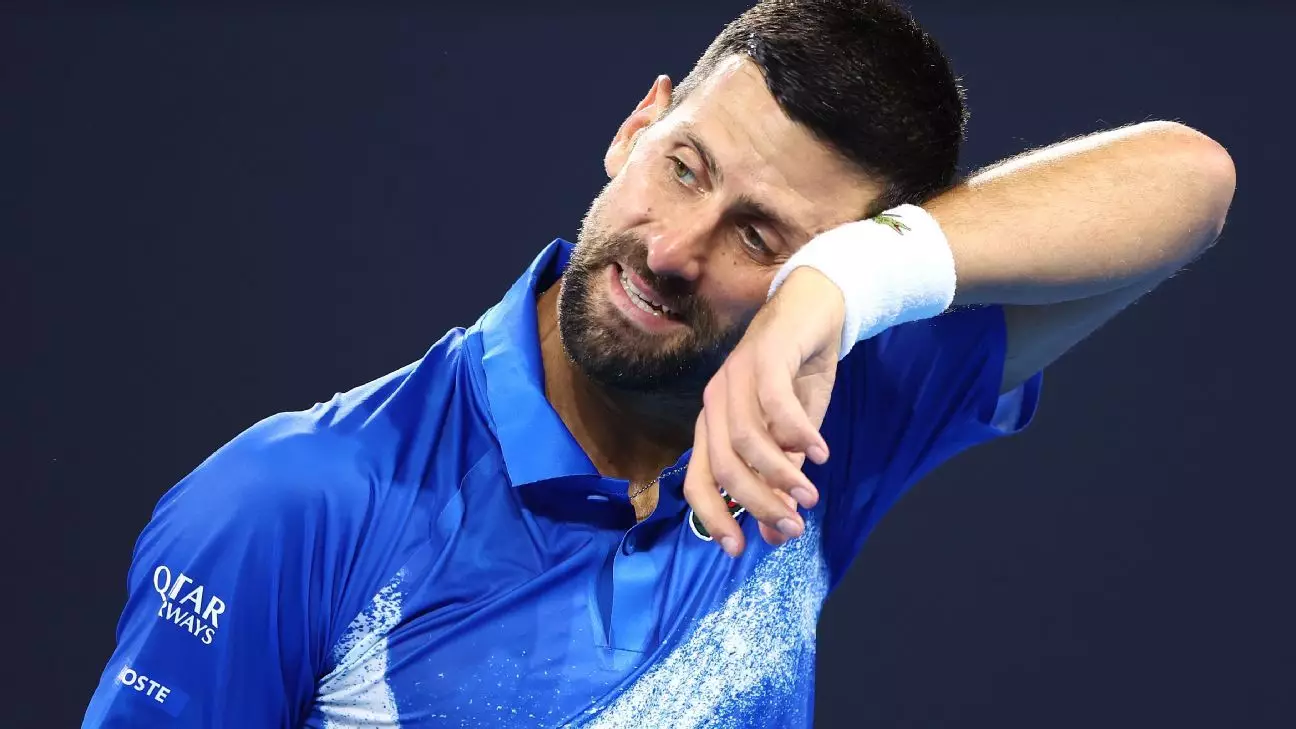Novak Djokovic’s connection to Melbourne carries a profound emotional weight, particularly shaped by the aftermath of his controversial deportation in 2022. The Serbian tennis star was denied the opportunity to compete for the Australian Open title due to his refusal to comply with COVID-19 vaccination mandates. This moment not only altered his trajectory at one of tennis’s grandest events but also left an indelible mark on his psyche. For Djokovic, returning to Melbourne isn’t just a professional endeavor; it is a confrontation with a painful chapter of his life defined by legal battles and public scrutiny.
Djokovic’s chilling experience during his detention illustrates the intensity of this challenge. Held for five days in an immigration hotel while awaiting a legal resolution, his situation escalated dramatically, culminating in the revocation of his visa. This singular event reshaped his narrative, labeling him as a contentious figure in the context of the pandemic. The Australian Open proceeded in Djokovic’s absence, with Rafael Nadal claiming victory, but the ramifications of Djokovic’s ordeal reverberated far beyond that tournament.
Lasting Effects of Trauma
In a recent interview with the *Herald Sun*, Djokovic opened up about the lasting psychological effects of his deportation ordeal. Upon landing in Australia or passing through immigration controls, he acknowledges experiencing a sense of trauma linked to the events of three years prior. The uncertainty of whether he would face detainment again surfaces during these moments, shaping his experience every time he sets foot on Australian soil. This unease reflects a broader psychological phenomenon where traumatic experiences can leave survivors grappling with anxiety long after the event has passed.
Despite his emotional scars, Djokovic has demonstrated resilience and a surprising capacity for forgiveness. He mentioned not holding grudges against Australia or its authorities, a statement indicative of his commitment to his personal and professional growth. The subsequent year after his deportation, he triumphed at the Australian Open, a victory imbued with profound emotion, particularly as he was surrounded by his family and support team. This duality—pride from his success and pain from his past—makes Djokovic’s journey to emotional healing particularly complex.
Preparing for the Future
As the Australian Open fast approaches, starting January 12, Djokovic’s record as the most successful men’s singles player at this prestigious tournament remains intact, with ten titles to his name. However, past experiences inevitably shape current expectations. The questions surrounding his emotional state may continue to linger, overshadowing his significant athletic achievements. For Djokovic, navigating this intricate mental terrain requires not only focusing on his game but also managing the psychological residue of his experiences.
In grappling with both his legacy and personal history, Djokovic exemplifies the resilience of an athlete who refuses to be defined by adversity. His journey serves as a reminder that even the greatest of champions must confront the shadows of their past, emerging stronger and more introspective. Ultimately, Djokovic’s story is not just about tennis victories but also about the profound impact of one’s experiences on the path to redemption and personal growth.


Leave a Reply